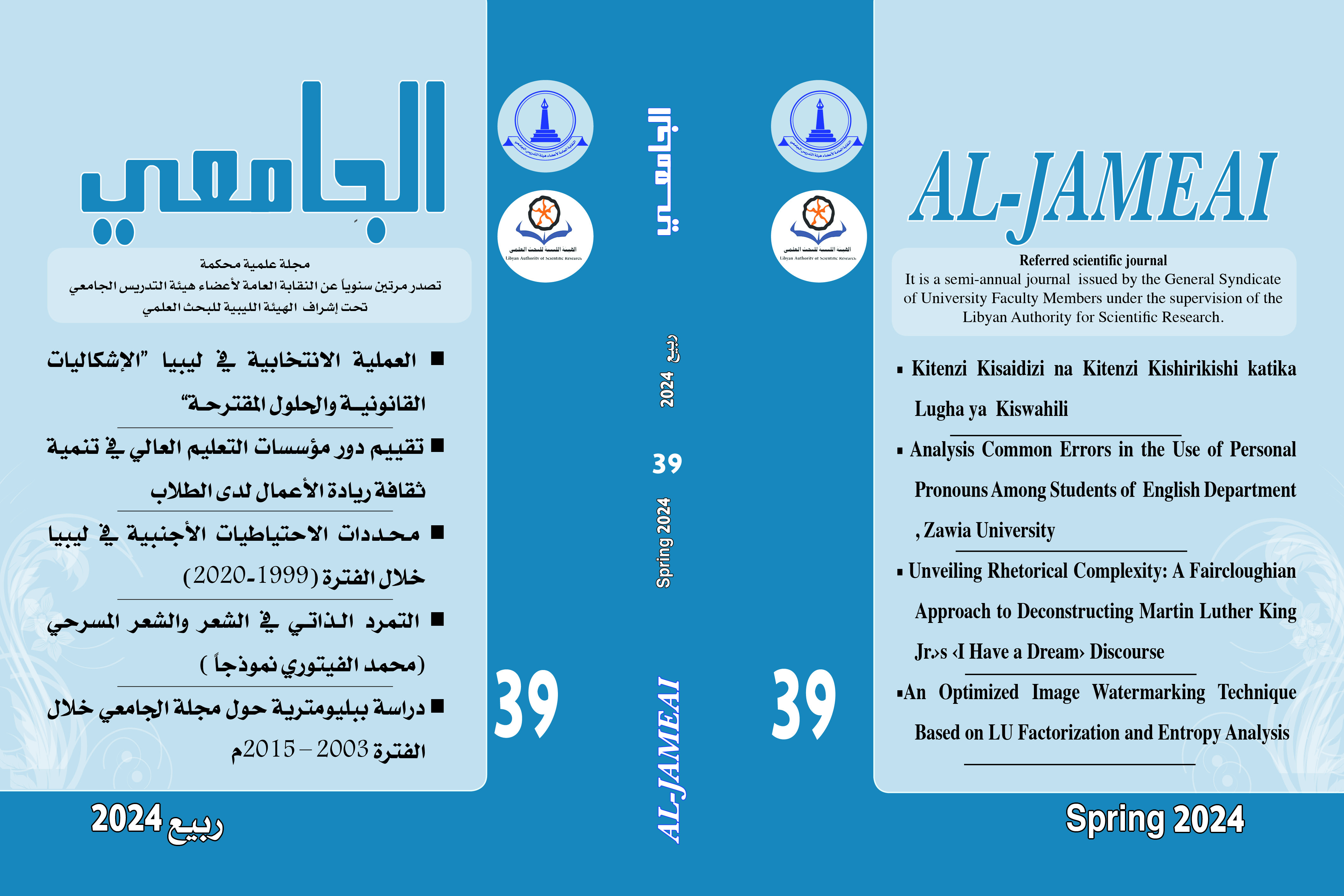دور التحول الرقمي في تطوير النظام الضريبي وأثره على حصيلة الايرادات الضريبية
(دراسة ميدانيه في مصلحة الضرائب طبرق)
الملخص
المستخلص:
هدفت الدراسة الي بيان دور التحول الرقمي في تطوير النظام الضريبي وأثره على حصيلة الايرادات الضريبية والحد من التهرب الضريبي ، وقد استخدمت الدراسة المنهج الوصفي التحليلي بالاعتماد على تصميم قائمة الاستبيان لجمع البيانات من مصادرها الاولية ، حيث تم توزيع الاستبيان على الموظفين العاملين بمصلحة الضرائب طبرق بهدف اختبار الفروض، ومن اهم النتائج التي توصلت إليها الدراسة انه يوجد اثر ذا دلالة احصائية بين التحول الرقمي وتطوير النظام الضريبي وزيادة ايرادات الضريبية والحد من التهرب الضريبي ودعم الموازنة العامة للدولة من خلال زيادة ايراداتها، التحول الرقمي يؤثر بشكل ملحوظ على زيادة التحصيل الضريبي عن طريق أتباع مجموعة من آليات تساعد في تحديث العمل بمصلحة الضرائب وهي تطبيق الاقرارات الضريبية الالكترونية وسداد الالكتروني ومنظومة الفاتورة الالكتروني التي تحسن الامتثال وبتالي تساعد على زيادة الايرادات الضريبية ،اوصت الدراسة بضرورة اتمام عملية التحول الرقمي وتطوير مستوياتها الراهنة داخل مصلحة الضرائب من خلال التحول من النظام اليدوي الي النظام الالكتروني مما يحسن كفاءة الادارة ويخفف العبء الاداري على الموظفين، الاهتمام بتدريب وتطوير العاملين بمصلحة الضرائب.
Abstract:
The study aimed to demonstrate the role of digital transformation in the development of the tax system and its impact on tax revenues and reduce tax evasion and the study used the analytical descriptive approach based on the questionnaire list design to collect data from its primary sources, The questionnaire was distributed to employees of the IRS Tobruk with the aim of testing the assignments and one of the most important findings of the study is that there is a statistically significant impact between digital transformation, the development of the tax system, the increase in tax revenues, the reduction of tax evasion and the support of the State's general budget by increasing its revenues, Digital transformation significantly affects increased tax collection by following a range of mechanisms that help to modernize the work of the IRS, namely the application of electronic tax returns, electronic payment and electronic invoice system that improve compliance and thus help increase tax revenues The study recommended that the process of digital transformation and the development of its current levels within the IRS should be completed through a shift from manual system to electronic system, thereby improving the efficiency of management and reducing the administrative burden on employees, paying attention to the training and development of IRS personnel.
التنزيلات









